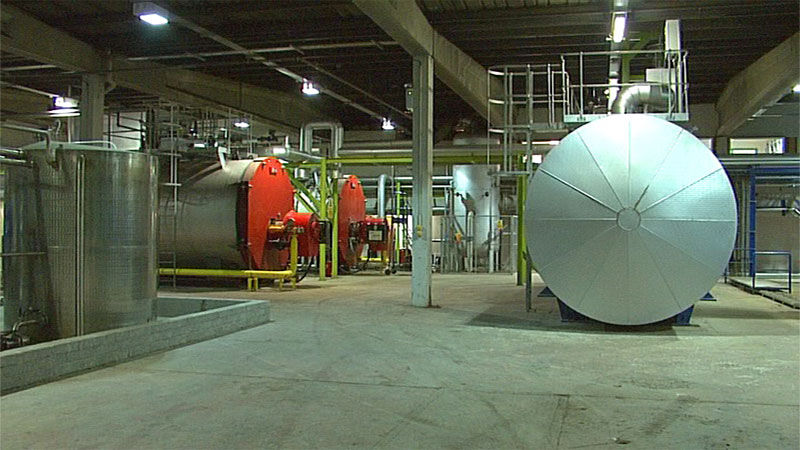
Solutions
Municipal Solid Waste Valorisation
What We Do
Combat the rising costs of waste management and provide sustainable savings.
As waste management costs escalate, innovative technology is crucial for waste handlers to minimise the volume and weight of landfill-bound waste. Sustainable waste management plays a vital role in reducing environmental impact, cutting greenhouse gas emissions, and improving global resource efficiency.
Unsegregated municipal solid waste arrives at the facility
STEP 01
Waste added to conveyer belt for inspection and separation
STEP 02
Pressure steam treatment, sterilisation, and biogenic material conversion (autoclave)
STEP 03
Screening and separation of fiber from non-organics. Non-organics separated for recycling.
STEP 04
Fibre drying (Wilson Fibre®)
STEP 05
Pelletisation (Wilson Pellets)
STEP 06
Our Process

A typical Wilson System can process up to 150,000 tonnes of organic waste per year. All other non-organics, such as metals and plastics, are fully sterilised and sorted for recycling.
%20in%20landfill%2C%20horizon__.jpg)
The world produces over 2 billion tonnes of municipal solid waste each year, with nearly 80% ending up in landfills or incinerated.
Problem
Over 50% of the waste in landfills consists of organic materials like food scraps, paper, and garden waste—resources that could be repurposed instead of contributing to environmental harm.
Landfills are the third-largest source of human-related methane emissions, a potent greenhouse gas.

We revolutionise waste management by diverting up to 90% of waste from landfills and incinerators, replacing traditional practices with innovative, carbon-negative solutions.
Solution
By giving organic waste a second life, we contribute to a cleaner environment and a more sustainable future.
Our approach offsets up to 200,000 tons of CO₂e annually, transforming organic waste into valuable resources and enabling the recycling of non-organic waste.
We deliver sustainable waste solutions to the most progressive cities in the world.

Benefits of Autoclave
No Burning, Melting, or Chemical Treatment: The autoclave process avoids incineration or the use of harmful chemicals, relying only on standard natural-gas boiler emissions for energy.
Enhanced Worker Safety: By eliminating the need for manual sorting of waste, the autoclave system reduces the risk of injury and exposure to hazardous materials, ensuring a safer working environment.
Fully Enclosed Process: The autoclave operates in a completely sealed environment, preventing the release of odours, toxins, or hazardous water, ensuring minimal environmental impact and a cleaner operation.
Inside Look
How We Do It
Introducing:
The Wilson System®
The Wilson System® (WS) is a cutting-edge autoclave technology that uses high-temperature, low-pressure steam to break down organic materials.
This process produces Wilson Fibre®, an energy-dense, cellulose-rich material that serves as a versatile resource for creating second-generation bio-products and biofuels, driving innovation in renewable energy and sustainable materials.





